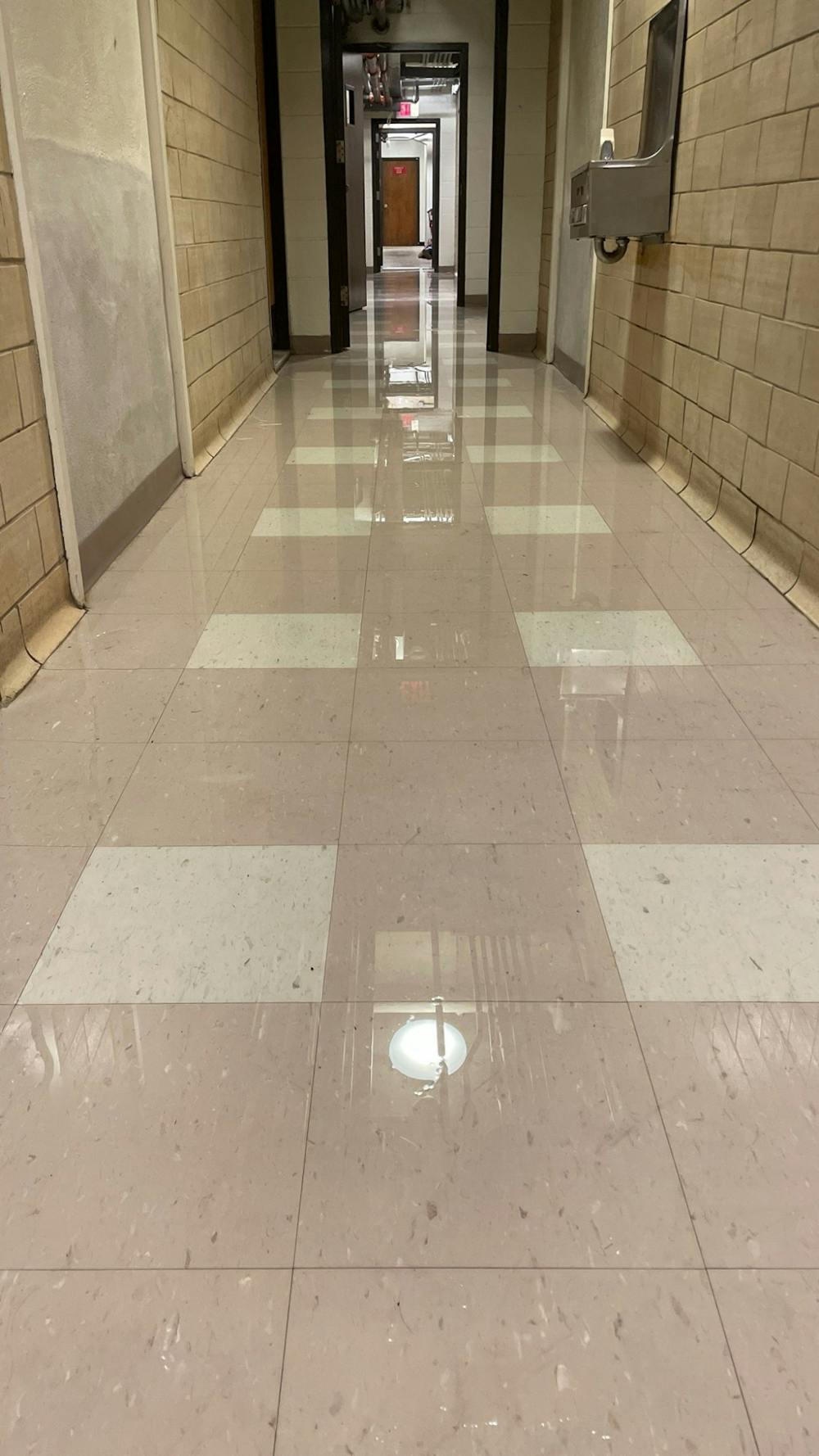On Wednesday, while I sat in my second class of the academic year — a course titled Cities, Sea Level Rise and the Environmental Humanities — an emergency alert buzzed on my phone. It read, “Tornado Warning,” and outlined the steps I should take to protect myself. Don’t go outside. Stay away from windows. Await further warning.
The warning was almost a novelty. My classmates and I chuckled at the irony of being issued a tornado warning amid a class on sea-level rise and climate change. The moment felt surreal — I come from Australia, where the chance of a tornado occurring was about as likely as a mid-summer snowstorm. But soon the sense of uncanniness began to subside, and we were all called back into class. As we discussed the theoretical in the classroom, the realities of the climate crisis were materializing above and around us.
It’s easy to feel protected by the Orange Bubble. Even COVID-19 seems to have wreaked little havoc within the confines of campus. Protected by our vaccinated status and the weekly testing regimen, cases are few and far between, and seldom heard of. When we do hear of a classmate, teammate, friend, or acquaintance confined in isolation, we murmur some sympathies about their circumstances and move on, feeling thankful that it isn’t us in that position.
But the truth is, the protection we experience in the bubble is tenuous. We are merely a few dozen cases away from an outbreak. Hurricanes are also capable of penetrating the orange bubble, as we witnessed with Hurricane Ida just a few nights ago.
It is easy for the sense of security to lapse into complacency. It is easy to get caught up in campus life — much easier than it was in the “real world” last year. But I challenge you to resist that urge. If anything, the freak storm that swept through Princeton the other day, which left dorms flooded, water pouring out of light fixtures, and turned courtyards into swampy marshes, should be a reminder that in Princeton, we are anything but immune to the realities of what we learn about in class.
While Princeton may seem like a haven, we can push its boundaries. We can spur it to open itself up to the outside and to realize the solutions we discuss in classrooms. We can support the movement for fossil fuel divestment and dissociation and urge the University to reflect the problem-solving mindset it so fervently advocates.
Princeton has agreed to divest from certain fossil fuels (specifically coal and tar sand oil) and companies that spread climate disinformation, and has promised to pursue a net-zero endowment; however, the timeframes and deadlines for these goals are non-existent.
The lack of urgency is similarly apparent in Princeton’s Sustainability Action Plan, which pledges net-zero Greenhouse Gas Emissions by 2046, a time-frame bested by all but about one other Ivy League University. The pathway to this net-zero emissions goal is also murky, with the plan citing the implementation of “known and unknown strategies” and “the potential purchase of new renewable electricity generation off-site” to reach this target. Further, the University only promises to “track” Scope 3 emissions and reduce “where feasible”.

While the commitment to divestment and the Sustainability Action Plan shows a drive to solve these issues, the urgency required to tackle them effectively seems lacking. The deadline for a solution has passed and the effects of radical changes in climate have already been felt in the wider community and have begun to even infringe upon the seemingly impregnable orange bubble.
If Hurricane Ida showed us anything, it is that the issue is at our doorstep and time is a luxury we no longer have. As a result of climate change, hurricanes like Ida will only become stronger and more frequent, posing greater infrastructural challenges to urban landscapes like New York City and threatening New Jersey (and our very own campus) with higher levels of flooding and greater storm damage.
I urge you to shrug off complacency and recognize the fragility of our position, understand the realities beyond the theoretical of classroom learning, and take action to protect and preserve the luxuries and safeties we enjoy within the boundaries of our campus.
Claudia Frykberg is a junior in the English department. She can be reached at frykberg@princeton.edu.









